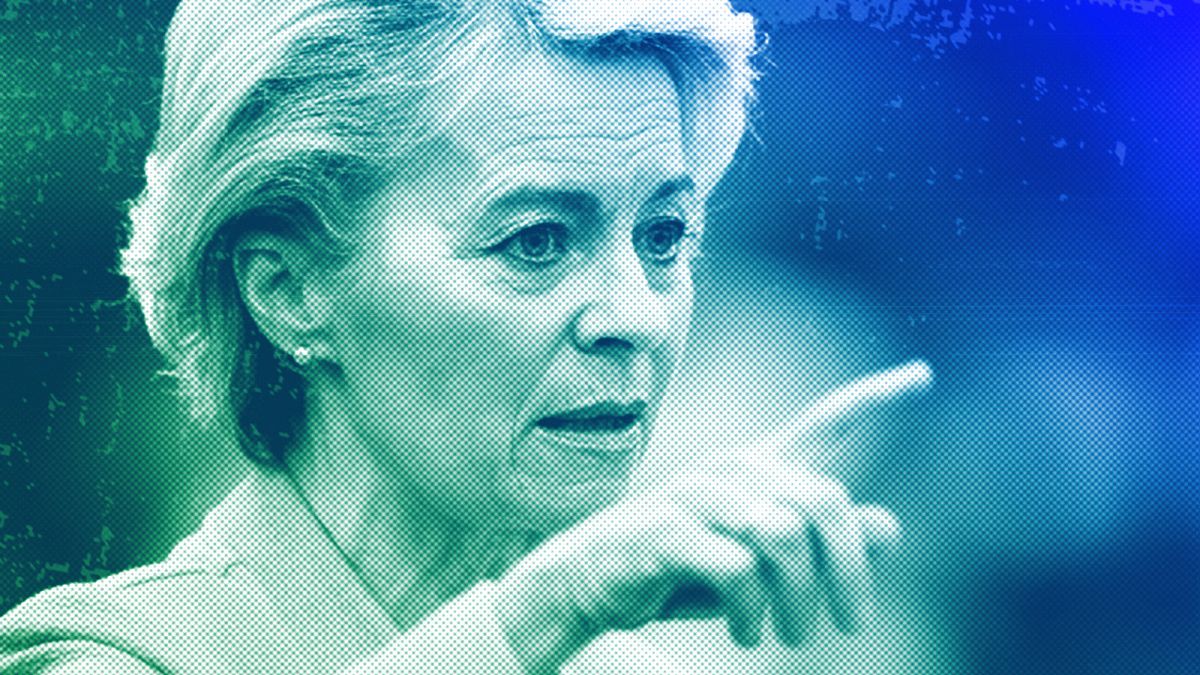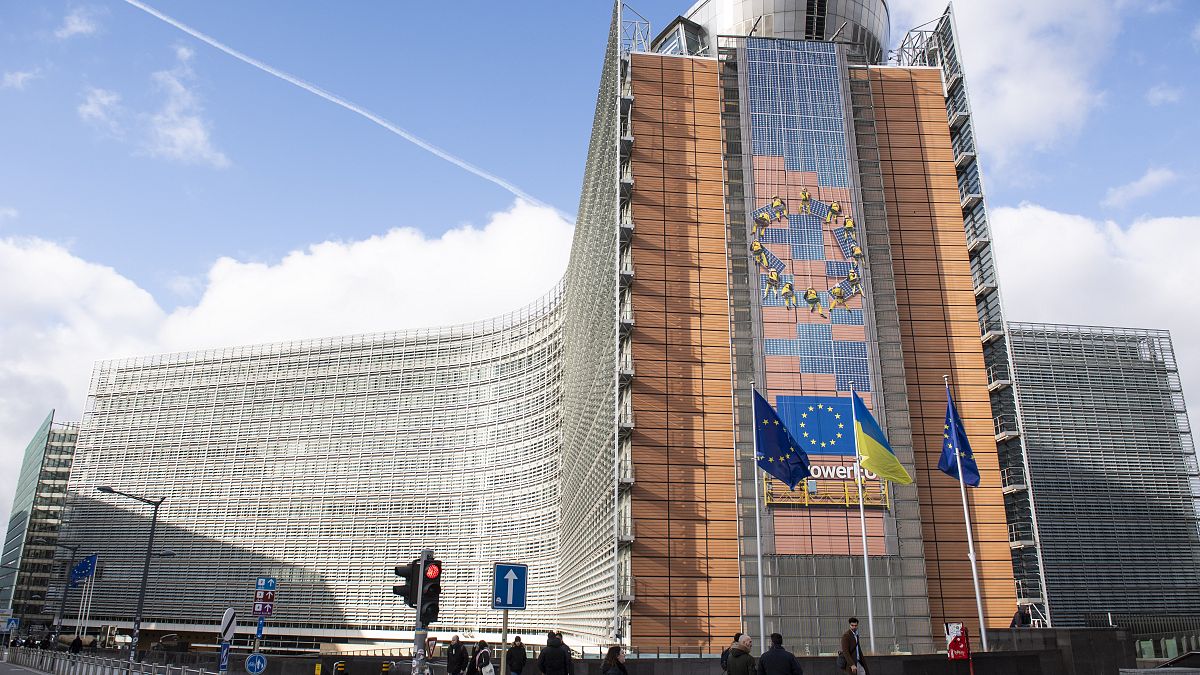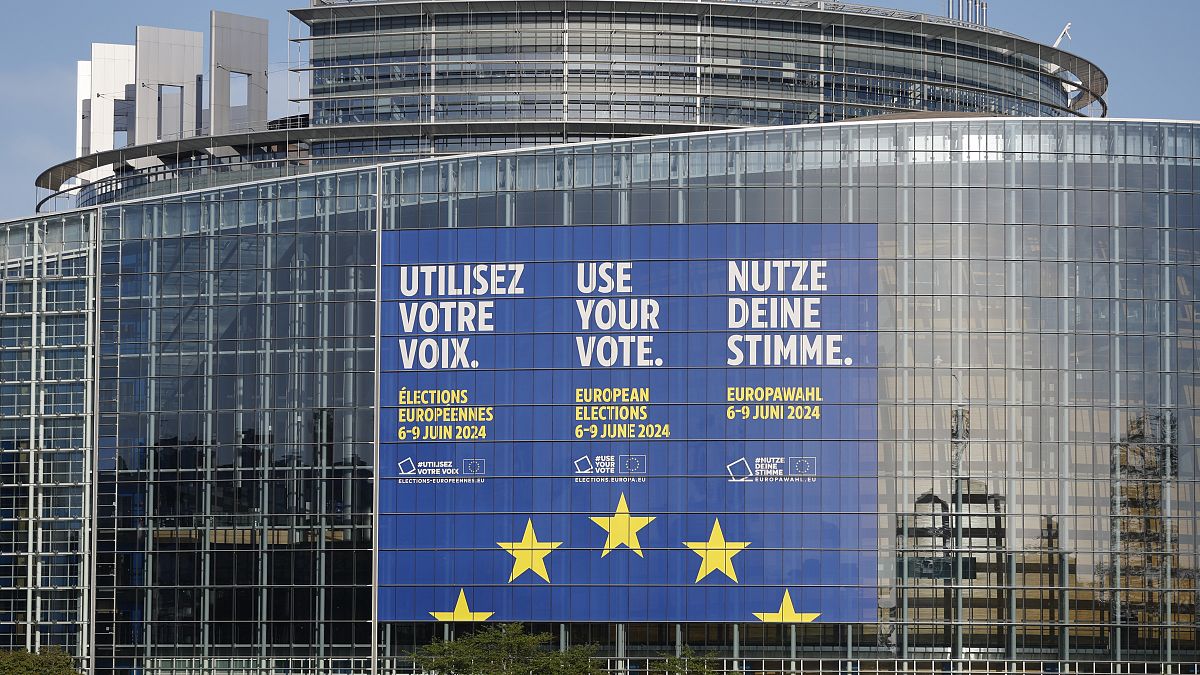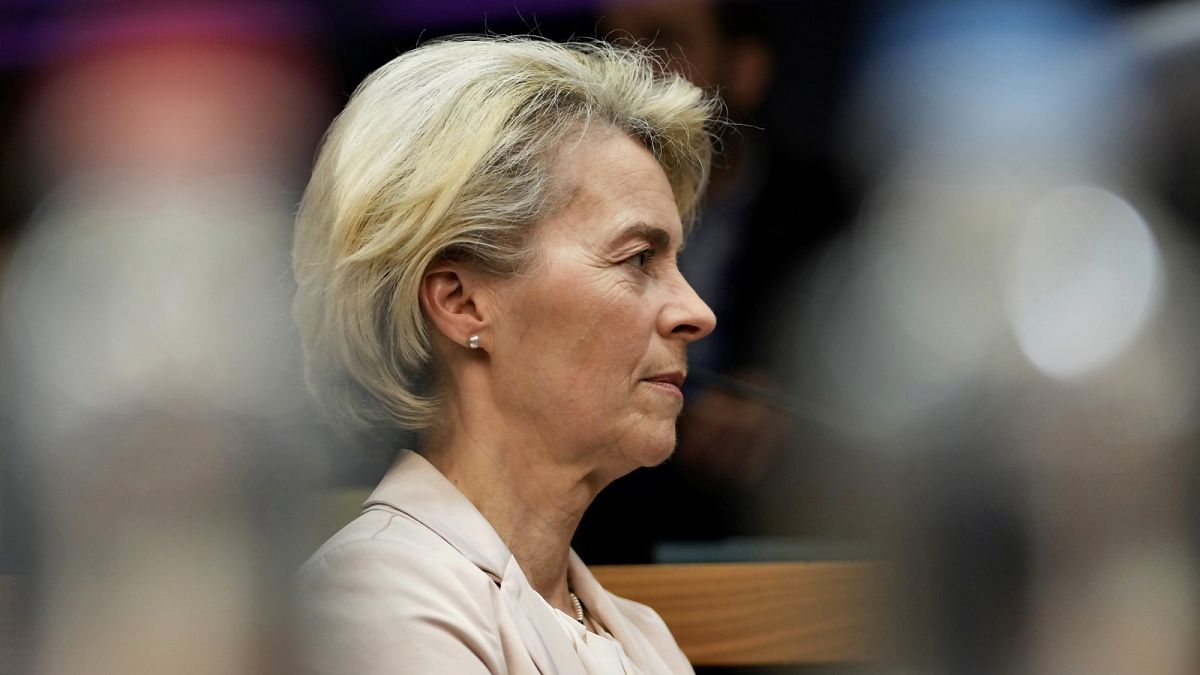World
Frans Timmermans resigns from key EU climate job to run for Dutch PM
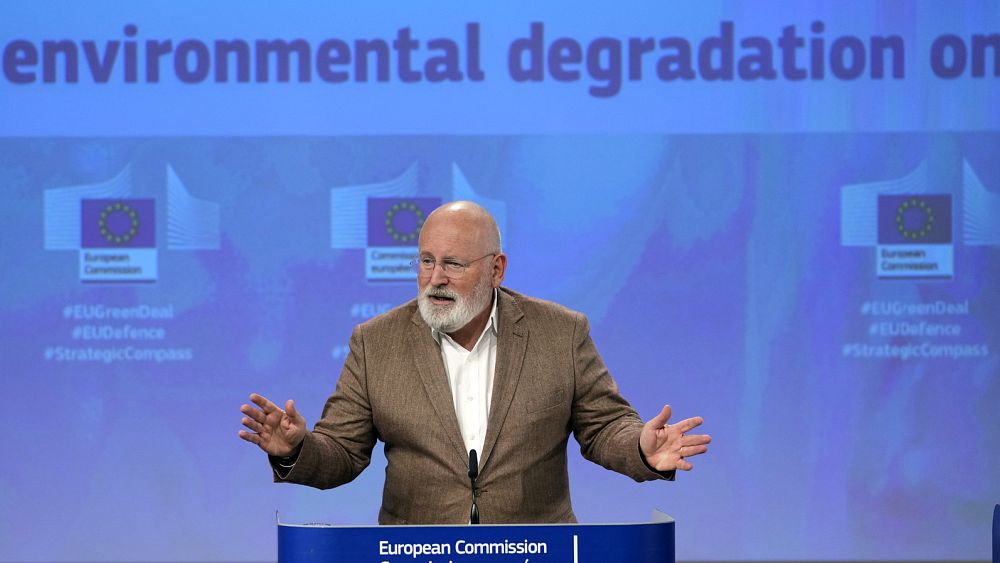
Frans Timmermans, the man tasked with spearheading the EU’s ambitious climate policies, has resigned from the Commission to return to Dutch politics in the hope of becoming the country’s next prime minister.
Timmermans, who has been in Brussels for the past decade, is to helm an alliance between the Greens (GL) and the Labour Party (PvdA) in the early general elections scheduled to be held on 22 November.
The alliance is currently leading in the polls with aggregator EU Elects favouring them with 17.1% of the votes, ahead of the centre-right VVD party of departing Prime Minister Mark Rutte.
“I thank Frans Timmermans for his passionate and tireless work to make the European Green Deal a reality,” Commission President Ursula von der Leyen said in a statement issued on Tuesday.
“Thanks to his excellent contribution and strong personal engagement, we have made great strides towards meeting the EU’s objectives to become the first climate-neutral continent, and towards raising the levels of climate ambition globally,” she added.
Maroš Šefčovič, the Commission’s Vice-President for inter-institutional relations and foresight and a former EU energy chief, will take over Timmermans’ portfolio in charge of the European Green Deal. He was also assigned, temporarily, the portfolio responsibility for Climate Action Policy until a new Dutch Commissioner is appointed.
Von der Leyen wished Šefčovič success in his new task of “driving forward the protection of the climate and the European Green Deal with the ambition it requires” and requested that the Dutch Prime Minister propose the names of a female and male candidate to be the new Dutch Commissioner.
The European Parliament and the Spanish Council Presidency have already been informed about the new arrangements.
The EU’s climate czar
Timmermans announced his intention to run on behalf of a left-wing alliance of socialists and greens in the upcoming Dutch general election in July, following the unexpected collapse of Prime Minister Mark Rutte’s coalition government.
His announced departure had left a hole in one of the EU’s most critical portfolios, which Timmermans had led since 2019.
Having served in Brussels for nearly a decade, Timmermans is hailed the EU’s climate ‘czar’. His anticipated departure had jeopardised the last stretch in EU policymaking for the Green Deal before the European elections take place in 2024.
He became responsible for the landmark EU Green Deal in 2019, which von der Leyen herself described as “Europe’s man on the moon moment”. Since then, he has spearheaded the adoption of transformative policies that aim to ensure the 27-member bloc reaches climate neutrality by 2050.
He has also been a prominent figure in international negotiations, and was instrumental in facilitating a deal during the COP27 summit.
His achievements include an EU ban of the combustion engine, a carbon border tax and a new Emissions Trading System (ETS) for road transport and buildings.
More recently, the highly contested Nature Restoration Law was adopted by a narrow majority in the European Parliament to become the latest feather in Timmermans’ cap.
His passion for green legislation meant he became a target for right-leaning parties, which claimed his legislation placed unnecessary burden on European industry and handicapped the economy.
These issues will be at the forefront of the elections in the Netherlands, where the populist Farmer-Citizen Movement gained significant territory in local elections in March this year, riding on a wave of rural anger at government environmental policies.
A critical portfolio
The Green Deal is likely to remain one of the European Commission’s priority portfolios as Commissioner Maroš Šefčovič takes the helm.
In her statement, von der Leyen described Šefčovič as one of the most senior and experienced members of her college.
“Our priority will be to strengthen the Industrial Clean Revolution, upgrading our grids and infrastructure for the energy transition and access to Critical Raw Materials,” she said.
His appointment means the EU’s climate policies will remain in the hands of a socialist, despite the scathing criticism of the main right-leaning European political group to which von der Leyen belongs towards the environmental initiatives led by Timmermans.

World
Ukraine's divisive mobilization law comes into force as a new Russian push strains front-line troops
KYIV, Ukraine (AP) — A divisive mobilization law in Ukraine came into force on Saturday, as Kyiv struggles to boost troop numbers after Russia launched a new offensive that some fear could close in on Ukraine’s second-largest city.
The legislation, which was watered down from its original draft, will make it easier to identify every conscript in the country. It also provides incentives to soldiers, such as cash bonuses or money toward buying a house or car, that some analysts say Ukraine cannot afford.
Lawmakers dragged their feet for months and only passed the law in mid-April, a week after Ukraine lowered the age for men who can be drafted from 27 to 25. The measures reflect the growing strain that more than two years of war with Russia has had on Ukraine’s forces, who are trying to hold the front lines in fighting that has sapped the country’s ranks and stores of weapons and ammunition.
Ukrainian President Volodymyr Zelenskyy also signed two other laws Friday, allowing prisoners to join the army and increasing fines for draft dodgers fivefold. Russia enlisted its prisoners early on in the war, and personnel shortages compelled Ukraine to adopt the new measures.
Russian troops, meanwhile, are pushing ahead with a ground offensive that opened a new front in northeastern Ukraine’s Kharkiv region and put further pressure on Kyiv’s overstretched military. After weeks of probing, Moscow launched the new push knowing that Ukraine suffered personnel shortages, and that its forces have been spread thin in the northeast.
Russian President Vladimir Putin said on Friday during a visit to China that the Russian push aims to create “a buffer zone” rather than capturing Kharkiv, the local capital and Ukraine’s second-largest city.
Still, Moscow’s forces have pummeled Kharkiv with strikes in recent weeks, hitting civilian and energy infrastructure and prompting angry accusations from Zelenskyy that the Russian leadership sought to reduce the city to rubble. On Friday, Mayor Ihor Terekhov said that Russian guided bombs killed at least three residents and injured 28 others that day.
Moscow denies deliberately targeting civilians, but thousands have died or suffered injuries in the more than 27 months of fighting.
The U.S. last week announced a new $400 million package of military aid for Ukraine, and President Joe Biden has promised that he would rush badly needed weaponry to the country to help it stave off Russian advances. Still, only small batches of U.S. military aid have started to trickle into the front line, according to Ukrainian military commanders, who said it will take at least two months before supplies meet Kyiv’s needs to hold the line.
Thousands of Ukrainians have fled the country to avoid the draft since Russia’s all-out invasion in February 2022, some risking their lives as they tried to swim across a river separating Ukraine from neighboring Romania and Hungary.
Late on Friday, Ukraine’s border service said that at least 30 people have died trying to cross the Tisza River since the full scale-invasion.
Romanian border guards days earlier retrieved the near-naked, disfigured body of a man that appeared to have been floating in the Tisza for days, and is the 30th known casualty, the Ukrainian agency said in an online statement. It said the man has not yet been identified.
___
Follow AP’s coverage at https://apnews.com/hub/russia-ukraine
World
An unusual autumn freeze grips parts of South America, giving Chile its coldest May in 74 years

Chileans are bundling up for their coldest autumn in more than 70 years mere days after sunning in T-shirts — a dramatic change of wardrobe brought on this week by a sudden cold front gripping portions of South America unaccustomed to bitter wind chills this time of year.
CHILE SHUTS DOWN A POPULAR GLACIER, SPARKING DEBATE OVER CLIMATE CHANGE AND ADVENTURE SPORTS
Temperatures broke records along the coast of Chile and in Santiago, the capital, dipping near freezing and making this month the coldest May that the country has seen since 1950, the Chilean meteorological agency reported.
An unusual succession of polar air masses has moved over southern swaths of the continent, meteorological experts say, pushing the mercury below zero Celsius (32 Fahrenheit) in some places. It’s the latest example of extreme weather in the region — a heat wave now baking Mexico, for instance — which scientists link to climate change.
Footprints create the shape of a heart in a snow-covered rugby field in Santiago, Chile, Wednesday, May 8, 2024. (AP Photo/Matias Basualdo)
“The past few days have been one of the longest (cold fronts) ever recorded and one of the earliest ever recorded” before the onset of winter in the Southern Hemisphere, said Raul Cordero, a climatologist at Santiago University. “Typically the incursions of cold air from the Antarctic that drive temperatures below zero occur from June onwards, not so much in May.”
The cold front sweeping in from Antartica has collided with warm air pushing in from the northwestern Amazon, helping fuel heavy rainstorms battering Brazil, according to that country’s National Meteorological system.
Chile’s government issued frosty weather alerts for most of the country and ramped up assistance for homeless people struggling to endure the frigid temperatures on the streets. Snow cloaked the peaks of the Andes and fell in parts of Santiago, leading to power outages in many areas this week.
“Winter came early,” said Mercedes Aguayo, a street vendor hawking gloves and hats in Santiago.
She said she was glad for a boost in business after Chile’s record winter heat wave last year, which experts pinned on climate change as well as the cyclical El Niño weather pattern.
“We had stored these goods (hats and gloves) for four years because winters were always more sporadic, one day hot, one day cold,” Aguayo said.
This week’s cold snap also took parts of Argentina and Paraguay by surprise.
Energy demand soared across many parts of Argentina. Distributors cut supplies to dozens of gas stations and industries in several provinces to avoid outages in households, , the country’s main hydrocarbon company, CECHA, said Thursday.
World
Brussels, my love? Transparency over MEPs' side jobs

In this edition, we look at what lawmakers’ extracurricular activities mean for their core role.
This week, we are joined by Sophia Russack, senior researcher from the Centre for European Policy Studies, Petros Fassoulas, secretary general of European Movement International and Anna Nalyvayko, senior project officer from the Wilfried Martens Center.
Panelists debate the ethical questions raised by MEPs who have side jobs. Those extra roles are legal, but the political earthquake caused by the Qatarargate scandal led to tighter rules and more transparency.
Is this enough to bridge the gulf between citizens and politicians, in today’s fractured political landscape?
“We see that they have improved rules when it comes to reporting requirements, to laying open your financial situation before and after the offers, and so on. But to be honest, none of these things will prevent another Qatargate,” said Sophia Russack, a think tanker who is an expert in EU institutional architecture, decision-making processes and institutional reform.
Despite these concerns, Petros Fassoulas said MEPs shouldn’t abandon contact with the real world altogether.
“It’s important for them to have the opportunity to bring expertise from outside and engage also with the world outside of the chamber,” Fassoulas said. “An MEP or any parliamentarian should be in contact with the people that they regulate, the businesses that they have an impact on.”
Guests also discussed the reasons for the crisis of public confidence in politicians, and gave some ideas for solutions.
Watch “Brussels, my love?” in the player above.
-

 World1 week ago
World1 week agoPentagon chief confirms US pause on weapons shipment to Israel
-

 Politics1 week ago
Politics1 week agoRFK Jr said a worm ate part of his brain and died in his head
-

 Education1 week ago
Education1 week agoVideo: Police Use Pepper Spray on Protesters on G.W.U.’s Campus
-

 Politics1 week ago
Politics1 week agoOhio AG defends letter warning 'woke' masked anti-Israel protesters they face prison time: 'We have a society'
-

 News1 week ago
News1 week agoNine Things We Learned From TikTok’s Lawsuit Against The US Government
-

 Politics1 week ago
Politics1 week agoBiden’s decision to pull Israel weapons shipment kept quiet until after Holocaust remembrance address: report
-

 World1 week ago
World1 week agoA look at Chinese investment within Hungary
-

 News1 week ago
News1 week agoThe Major Supreme Court Cases of 2024

